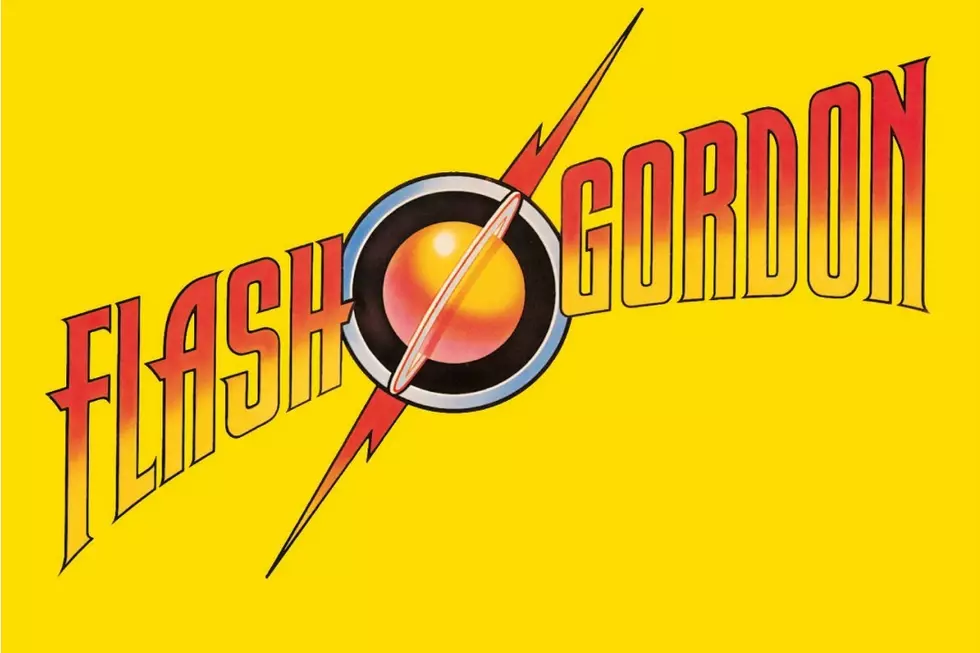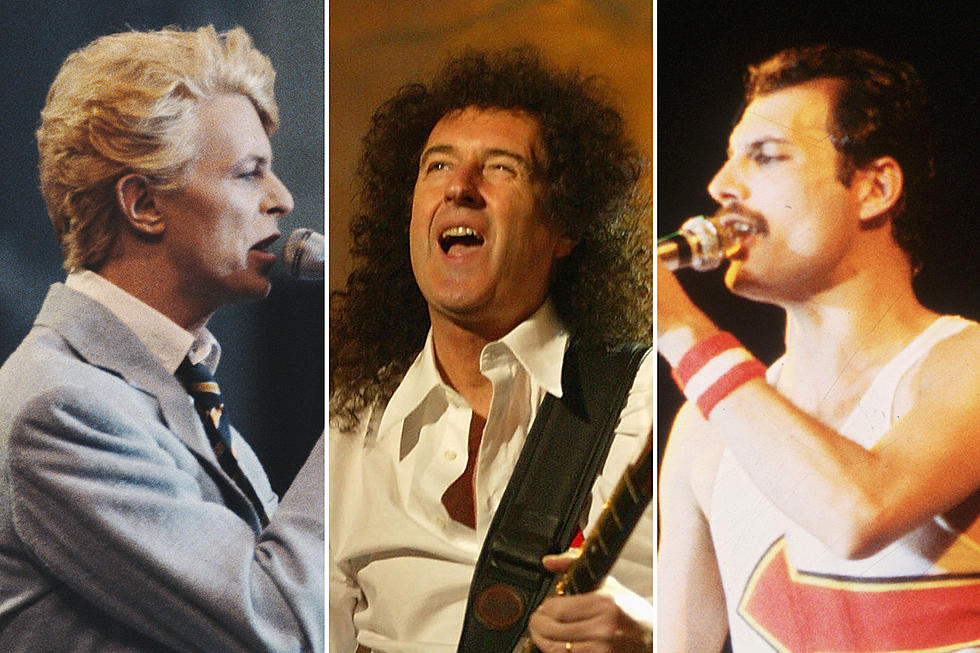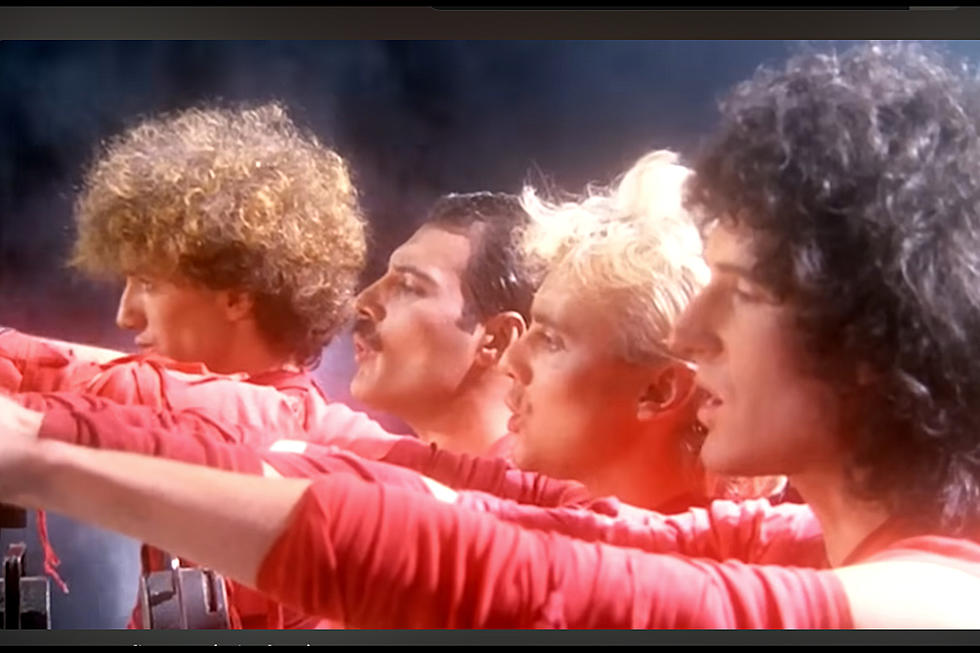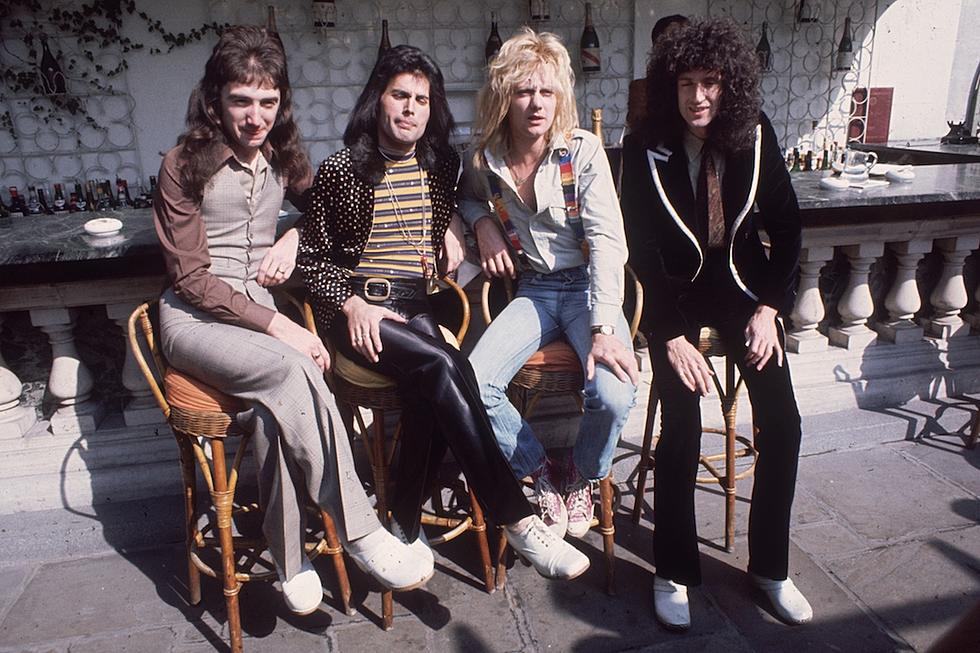
When Queen Sailed the Seas of Sci-Fi Cheese With ‘Flash Gordon’
"But who are the queens?" Producer Dino de Laurentiis is alleged to have uttered this confused cry after being pitched the idea of hiring Queen for the soundtrack to his Flash Gordon film, and it's as apt a quote as any to describe the chaos behind the scenes of what would ultimately become an early-'80s camp sci-fi classic.
Rushed to the screen in the wake of Star Wars' incredible success, filmed with a leading man plucked from an episode of The Dating Game and saddled with a script that struggled to bridge its co-writers' language divide, Flash Gordon never had a prayer of provoking much more than unintentional laughs — but at least the band supplying the music took the assignment seriously.
Part of the appeal, explained guitarist Brian May, was the opportunity to bring a rock component to a field that had always been largely dominated by orchestral work. While rock soundtracks weren't really anything new, Queen's assignment for Flash Gordon was to supply original songs as well as the score — and that, coupled with the film's sci-fi story, proved too intriguing to resist.
"It was in our minds that we would be up for writing a soundtrack if the right one came along. We'd been offered a few, but most of them were where the film is written around music, and that's been done to death – it's the cliche of 'movie star appears in movie about movie stars,'" May recalled in The Guitar Greats.
"We would be writing a film score in the way anyone else writes a film score, which is basically background music, but can obviously help the film if it's strong enough," he added. "That was the attraction, because we thought that a rock group hadn't done that kind of thing before, and it was an opportunity to write real film music. So we were writing to a discipline for the first time ever, and the only criterion for success was whether or not it worked with and helped the film, and we weren't our own bosses for a change."
With de Laurentiis safely assuaged by director Mike Hodges, the group set about songwriting for Flash Gordon, but given that they were already getting down to work on their eighth studio LP, The Game — and setting out on a U.S. tour — time for the soundtrack was at a premium. In order to make the most of their brief window of availability, May and the rest of the band (bassist John Deacon, singer Freddie Mercury and drummer Roger Taylor) worked on their songs separately after viewing a short chunk of the film in progress.
The compacted timeline didn't offer much in the way of room for revisions — and as the members of Queen were soon to discover, their approach to the Flash Gordon score didn't exactly jibe with what the film's producer had in mind.
"We went in and saw some of the rushes of the film and loved it, and we all went away and made some demos separately, Roger, John, Freddie and me, and there came a day when we all got in the studio and played them back to Mike and to Dino and asked: 'This is what we've come up with. What do you think?'" May told the Independent. "There was a horrible moment when Mike jumped up and down saying, 'It's brilliant, it's brilliant,' and Dino sat there with a face ashen and white as a sheet and obviously didn't enjoy it, and when it came to the theme I had written – you know, 'Flash' – well, Dino said, 'It's very good, but it is not for my movie.'"
Watch Queen Perform 'Flash'
Fortunately for Queen, the production of Flash Gordon was already so far off the rails that the soundtrack was arguably the least of de Laurentiis' worries. The production was beset by any number of difficulties, as recounted in a fantastically entertaining io9 article on the making of the film, from the minimal acting experience brought to the table by leading man Sam Jones to the wildly different ideas the multi-cultural cast and crew had regarding the movie's tone.
Jones agreed that the end result is "very campy," but said "we played it straight; we couldn't have played it any other way. When the crew watched the rushes and were laughing hysterically, Dino said, 'Why are you laughing?' And then they discovered they had a comedy, that it was camp. I've heard from the screenings that some people couldn't hear the words because of all the applause and laughter ... but we did play it seriously."
Queen and camp were never exactly mutually exclusive, and their work on the soundtrack accentuated the movie's over-the-top silliness without being condescending about it — as exemplified by the two tracks that included lyrics, "Flash's Theme" and "The Hero." But their instrumental efforts for the movie were also deceptively smart, and boasted some of the band's deeper and most interesting compositional work — even if those achievements were undermined by the group's decision to splice snippets of dialogue into the songs.
The film was ultimately something of a success at the box office, even if it ended up being a comedy instead of the majestic space opera de Laurentiis envisioned. Released a few days later on on Dec. 8, 1980, the soundtrack managed to break the Top 40 in the U.S., with "Flash's Theme" making it to No. 10 on the U.K. singles charts. All in all, however, the album was overshadowed by the chart-topping success The Game had enjoyed earlier in the year. The soundtrack has acquired some of the same cult status achieved by the film (and was even sampled later by Public Enemy), but it ultimately served as an odd footnote to the group's discography.
The inherent theatricality of Queen's music might have lent itself to any number of soundtrack situations, as amply demonstrated by a certain iconic scene from Wayne's World. But Flash Gordon would sadly prove to be the only time they took the reins for this type of project. The closest they'd come in later years would be the handful of songs they contributed to Highlander in 1986.
May later suggested that the constraints that Queen's schedule placed on their Flash Gordon efforts may have kept them from rushing back to film work. "Unfortunately, we didn't have enough time," he told Guitar Player. "We were doing The Game and an American tour at the same time Flash was going on, so it was ridiculous. We put as much time as we could in. We would do a week here and a week there. I spent some time with the arranger and orchestra to try and get some coherence to it all."
Rejected Original Titles of 30 Classic Albums
Queen’s Outsized Influence
More From Ultimate Classic Rock









